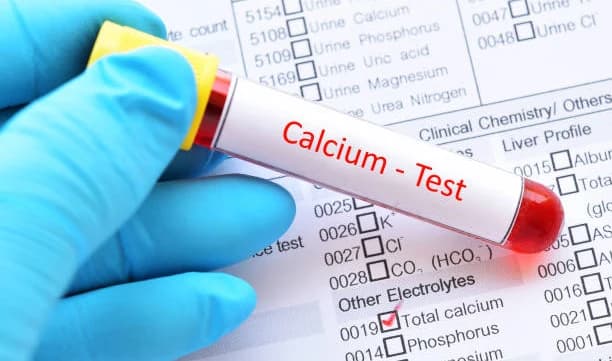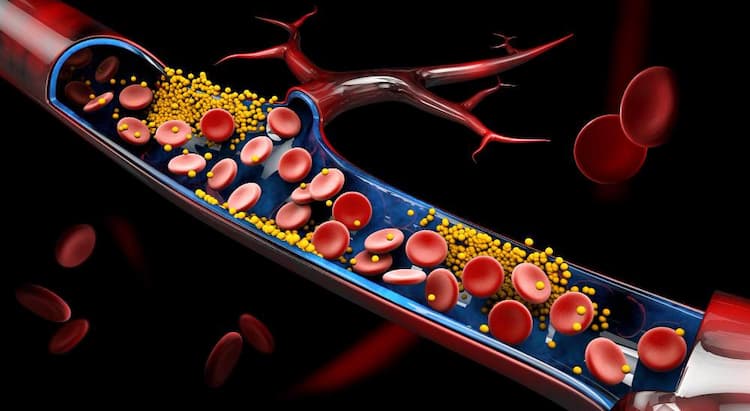Calcium Levels Test: High vs Low vs Normal Range

Medically Reviewed By
Dr Divya Rohra
Written By Komal Daryani
on May 10, 2022
Last Edit Made By Komal Daryani
on Mar 12, 2024

The calcium level test, also known as the calcium blood test, measures the calcium levels in the blood. Calcium is a vital element that plays a crucial role in health. It is stored in cartilage and bones, and it is a building block of the entire bone skeleton and supports the whole body along with the organs. It helps in muscle contraction and relaxation, helps in blood clotting, and also works as a chemical messenger, apart from providing strength to the bones and teeth. Therefore, any abnormality in calcium levels may cause a range of symptoms and medical conditions.
What Is A Calcium Level Test Or Calcium Blood Test?
The calcium level test ensures the appropriate levels of calcium in the blood for healthy bones and metabolism. Low or high levels of this element indicate some unusual health issues or clinical conditions in a person.
The test measures the total calcium (free and bound) circulating in the blood and the free or unattached calcium in the blood. But the calcium blood test doesn’t tell you the quantity of calcium in your blood. Apart from this test, a person may need other tests like vitamin D and bone density tests (DEXA scan) to get a clear view of bone health.
Normal Range Of Calcium Levels Tested In The Blood
A blood sample reveals the following test results for calcium levels after a lab test done by a healthcare provider:
- Free and bounded calcium or total blood calcium: 8.5 -10.5 mg/dL (milligram per deciliter)
- Unbounded or free calcium or free Ionized calcium: 4.65 - 5.2 mg/dL
Why Is A Calcium Level Test Performed?
One of the most common tests is a calcium blood test, which is usually included in routine screening tests. Calcium occurs in combination with phosphorus and gives a special structure to the bones and thus also offers strength to the bones.
A calcium level or blood test may be needed to check for too much or too little calcium, screen for certain disorders, and for many reasons, such as:
- It can be recommended as a routine test to assess the general health condition of any individual.
- If someone is showing signs or symptoms of high (hypercalcemia) or low calcium (hypocalcemia) in the body
- To keep track and see the effectiveness of the treatment of a person who is going through a calcium-related illness or health issue
A calcium level test is also needed in some abnormal health conditions, such as:
- Osteoporosis and any other bone disorder
- Any type of cancer (lung, kidney, neck, head, etc.)
- Diseases of the kidneys or liver, as well as diseases of the intestine
- Cardiovascular disease
What Are The Symptoms Of Abnormal Levels Of Calcium (Low And High)?
High level of calcium (Hypercalcemia)
High calcium levels are also known as hypercalcemia, and the symptoms of excess calcium in the blood are:
- Increased thirst
- Frequent urination
- Nausea and vomiting
- Fatigue and headache
- Abdominal pain and constipation
Low level of calcium (Hypocalcemia)
Low calcium levels in the blood are known as hypocalcemia, and the symptoms associated with such a condition are:
- Scaly and dry skin
- Brittle nails
- Muscle pain, cramps, stiffening, and spasm
- Restlessness, irritability, and confusion
- Spasm in throat muscles making difficult breathing
- Arrhythmia or abnormal rhythm of heart
- Tingling sensation in feet, fingers, lips or tongue
How Is The Calcium Test Done?
A phlebotomist often performs blood calcium level tests and draws blood from the vein of the arm. It is a simple test procedure and takes only a few minutes. And the collected sample is sent to the authorized medical lab for further analysis. A report can be picked up the same day or the next, or it can be downloaded from a diagnostic lab's official website.
Before the test, one has to stop consuming food and any beverage or medication, except water, for several hours as instructed by the physician. This test has no major risks or side effects except minor discomfort like bruising or tenderness at the site of blood draw, which goes away quickly.
Test Results
Abnormal results of calcium tests can be the cause of stress. But it is always not possible that a person will certainly have any disease. Sometimes abnormal calcium levels are also due to a dietary deficiency. So a doctor may recommend additional tests to confirm the cause of low or high calcium levels. The additional tests can be urine analysis, vitamin D testing, and analysis of phosphorus or magnesium in the blood.
High calcium levels in the results indicate kidney and liver ailments, certain types of cancer, multiple myeloma, bone tumors, benign parathyroid tumor, HIV, lung disease, excess vitamin D, hyperparathyroidism, and Paget’s disease.
Abnormally low calcium levels indicate osteoporosis, weak bones, hypothyroidism, kidney disorders, low vitamin D, dietary deficiency of calcium, pancreatitis, high levels of phosphorus, and others.
Irregular calcium levels should be treated immediately because they can cause other serious health issues and life-threatening complications.
How To Book A Calcium Blood Test From Redcliffe Labs?
Usually, a blood calcium test measures the bound and unbound calcium or total calcium levels in the blood to give an overall view of the calcium status stored in the body. To get tested near you, order an online test at Redcliffe Labs. Once the blood test analysis is completed in the lab, it will be available online.
Redcliffe Labs is India’s most trusted automated lab, which offers a range of tests with a focus on quality and affordable costs for everyone. It has various regional centres or labs across India and serves millions of customers with a strong market presence, high-tech scientific labs, and services.
Just book an online slot directly or through the displayed number on the website. A well-trained phlebotomist will visit your home for sample collection. Within 24 hours of sample collection, a report will be sent to your e-mail ID, or you can also get the report through whats-app, or it can be downloaded from the website www.redcliffelabs.com.
Disclaimer:
The blog content has been posted as a piece of information and awareness only. The content provided in this blog, or in any linked materials, are not proposed and should not be taken as medical advice. Redcliffe Labs strongly recommends users to consult with their health care providers to make any medical or health-related decision.



